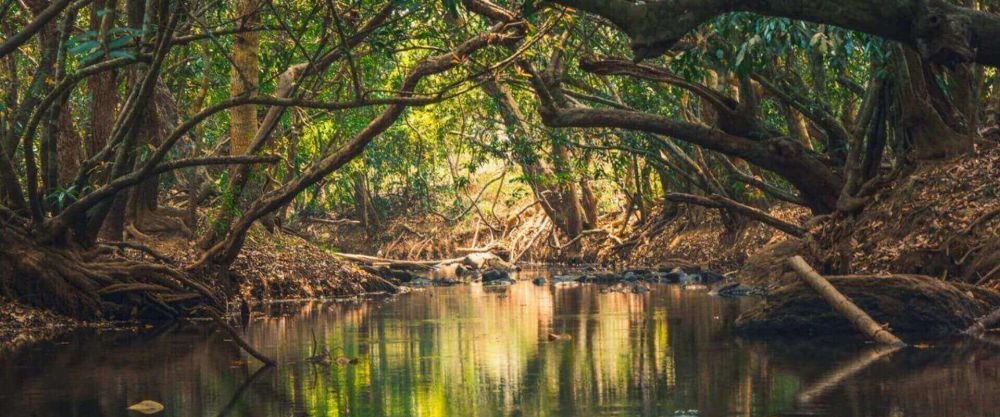

Kuruva Island, locally known as Kuruvadweep, is a tranquil and pristine river delta on the Kabini River in the Wayanad district of Kerala, India. This secluded destination is renowned for its lush greenery, rare flora and fauna, and serene backwaters, making it an ideal spot for nature enthusiasts and peace seekers. The island spans approximately 950 acres of dense and evergreen forest, making it a biodiversity hotspot and a protected river delta system.
The origins of tourism in Kuruva Island date back to the early 1980s when the region's natural beauty began to attract local visitors. Gradually, the island gained popularity among niche travelers who were seeking destinations away from the typical tourist trails. The Kerala Department of Tourism recognized Kuruva Island's potential and started promoting eco-tourism activities to preserve the delicate environment while allowing visitors to explore its scenic landscapes. Eco-tourism, which emphasizes sustainability and environmental responsibility, became the cornerstone of Kuruva Island's tourism ideology, aligning with Kerala's overall tourism approach that is encapsulated in their slogan, "God's Own Country."
Over the years, the island has seen measured development aimed at enhancing the visitor experience without compromising the ecological balance. Activities such as bamboo rafting, walking trails, bird watching, and nature photography have been carefully introduced, turning Kuruva Island into a notable eco-tourism destination within Kerala.
Homestays and eco-friendly resorts in the nearby areas of Wayanad have also contributed to the island's prominence, providing visitors with sustainable accommodation options that complement the island's ethos of conservation.
In recent times, Kuruva Island has experienced a significant increase in visitors, partly due to growing awareness and interest in sustainable travel. The current tourism trend leans towards experiential travel – where visitors are not merely observers of nature, but active participants in understanding and preserving it. Local guides, often residents of neighboring villages, provide insightful tours, educating visitors about the island's ecosystem and the need for its protection.
Moreover, the impact of social media has brought Kuruva Island into the limelight, attracting a global audience and encouraging responsible travel narratives. The island's administration has implemented strict visitor limits and guidelines to ensure minimal ecological impact, such as restrictions on plastic use and emphasis on waste management. Seasonal closures of the island during monsoon periods allow for natural rejuvenation and protect both local wildlife and visitors from the harsher weather conditions.
As tourism continues to evolve, so does the approach to visitor management and environmental conservation on Kuruva Island. Future efforts are directed towards balancing the economic benefits of tourism with the preservation of the island's natural beauty, ensuring that Kuruva Island remains a captivating and sustainable destination for generations to come.
For those looking to visit Kuruva Island, it is important to respect the local regulations, engage with the community in a positive manner, and leave no trace, to maintain the island’s untouched charm and ecological significance.